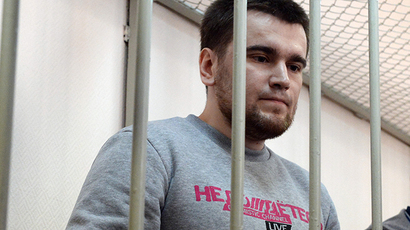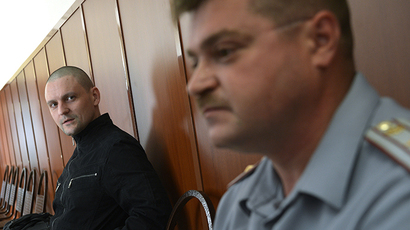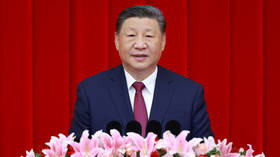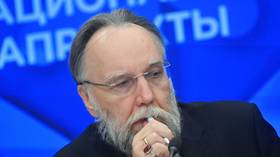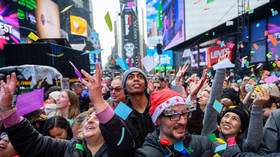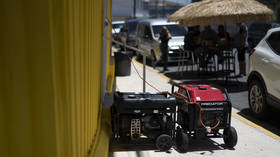Supreme Court presidium refuses to lift sentence of Bolotnaya Square rioter
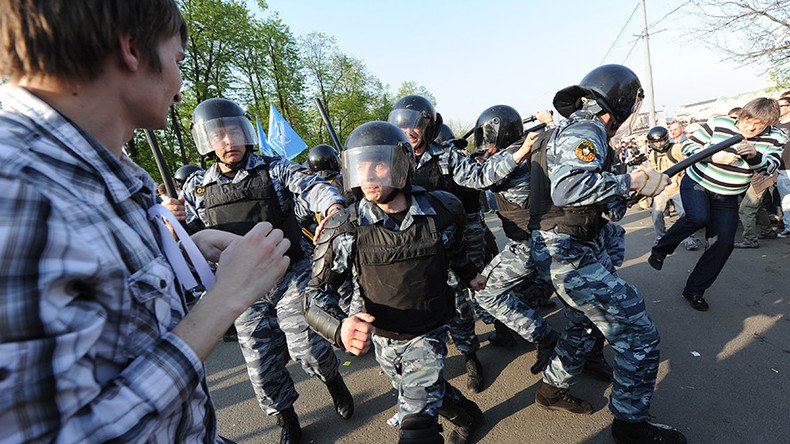
The Russian Supreme Court Presidium has refused to overturn the prison sentence of a convicted rioter, despite the fact that the European Court of Human Rights (ECHR) found violations in the investigation and ordered that the convict be compensated.
The court dealt with the case of Yaroslav Belousov, a Russian man who in 2014 was convicted of participating in mass riots in Moscow in 2012, as well as using violence against a representative of the authorities. In February 2014 he was sentenced to two-and-a-half years (30 months) behind bars, but the term was later shortened to 27 months. In September 2014 Belousov walked free, as he had served the majority of his term in pre-trial custody.
However, the defense appealed to the ECHR and in 2016 its findings were that there had been violations in the course of both the investigation and the trial. In particular, the ECHR discovered alleged violations of the right to freedom of assembly, and for the right to a fair trial The European Court decided that the Russian government should pay Belousov €12500 in compensation.
For this reason the defense to appeal to the Russian Supreme Court and demand the cancelation of the sentence.
However, on Wednesday the Supreme Court Presidium refused to alow the appeal. At the court session the prosecutor said that Belousov had been defended by professional law attorneys, with the opportunity to communicate with them in private, therefore it was wrong to claim that the defendant’s rights had been violated. He added that while it was right to say that the 2012 rally on Bolotnaya Square was initially peaceful, eventually it developed into mass unrest and led to the criminal prosecution of those who assisted.
The prosecutor also noted that the sentence passed to Belousov was below the lowest limit stated in the criminal code as the court had taken into account the state of convict’s health and the actual role he played in the unrest. However, the prosecutor agreed that the court order to take Belousov into custody before trial could be canceled.
Belousov’s defense did not agree with the ruling of the Supreme Court Presidium and said that they planned to file in a complaint with the Council of Europe’s Committee of Ministers.
The ‘Bolotnaya Square Case’ is the name used by the Russian mass media to describe a set of criminal probes launched into unlawful actions that took place at Bolotnaya Square in Moscow on May 6, 2012, shortly before Vladimir Putin’s presidential re-inauguration.
The riots began during a sanctioned rally against alleged violations during the 2011 parliamentary polls, organized by several opposition parties and movements. At first the march went off peacefully, but some of the protesters proceeded to violate the conditions of the event and clashed with police officers who tried to restore order. As a result, the rally was dispersed and many people were detained. Police established the identities of the most active rioters, then located and charged them.
The initial number of suspects in the Bolotnaya Case was 28, but 11 were released under amnesty in December 2013. Most of the rest received prison sentences or suspended sentences of about three years. One man was sent to a closed psychiatry ward after doctors established that he was suffering from acute schizophrenia.
Investigators have claimed that in the course of the probes they had discovered that the initial unrest had been planned and provoked by activists who had been advised and funded by Georgian politician Givi Targamadze, known as an expert in street protests and so-called "color revolutions." A criminal case has been started against Targamadze, but he has not been brought to trial in Russia because he lives abroad.
